- Home
- Iris Murdoch
The Bell Page 2
The Bell Read online
Page 2
“Real people are destructive of myth, contingency is destructive of fantasy and opens the way for imagination. Think of the Russians, those great masters of the contingent. Too much contingency, of course, may turn art into journalism. But since reality is incomplete art must not be afraid of incompleteness. Literature must always represent a battle between real people and images; and what it requires now is a much stronger and more complex conception of the former.”
This is the rousing penultimate paragraph of “Against Dryness”, and perhaps in retrospect its distinctions are almost too powerful, too seductive. Iris Murdoch’s critics have steadily berated her for not fulfilling her own prescriptions. She wrote of “the consolations of form” as though those were self-evidently inferior to some tough, unformed “realism” which would remain true to the “incomplete”. But in fact, a precise and delicate reader of her novels, or anyone else’s, does not experience any such brute opposition. There is a danger in Murdoch’s powerful formulations that her ideas can become associated with a pervasive modern myth that has also damaged both fiction and criticism—the myth of the primacy of the “random”. Too many novels eschew plot, storytelling, shapeliness, and wit in pursuit of this “authentic” sense of the random and the open-ended. Ian McEwan’s splendid Enduring Love was misunderstood by both reviewers and the Booker jury because it appeared to be “contrived”, plotted, formally too tight—although it was about a form of madness that sees fate and religious and erotic purpose where none is, and then creates it. He had found the appropriate form for the driven nature of his subject-matter. I think, without ceasing to respond to Murdoch’s call for both character and contingency, we can admire the formal variety of her fictions, including the artifice. If one looks with the microscope of a novelist learning her trade at any novel, from War and Peace to Malone Dies, from La Rabouilleuse to The Castle, concentration on precise things like the contents of a description, the number of metaphors, the number of characters in a scene, a chapter, the whole work, on the narrative transitions and what has been suggested but omitted give a more complex picture than any simple contrast between the realistic and the mythic, the fantastic, or the formally controlled. There is a general impression, not inaccurate, of a “world” of the Murdoch novel, with agitated hurried dialogue, discussion of moral ideas (sometimes in stressed italics), unexpected problems with machines or near-drownings, dogs and other creatures who are part of the texture of emotion, a plethora of accidents, mysteries ... and bright sensuous colours, and described rooms and significant objects, milk bottles or works of art. But technically they differ more than this ease of recognition may suggest.
There are those, including the first two, the Irish-Gothic-Platonic religious fantasy of The Unicorn, and the Nietzchean fable of The Time of the Angels, where the symbolic nature of the world constructs a fabulous story in which, nevertheless, the people are mortal beings, not figments. There are many varieties of realism—A Severed Head combines a Wildean or Shavian drawing-room dance with a wicked anthropological undertow, whilst An Unofficial Rose and The Nice and the Good create space and leisure in their telling, are “English” like Jane Austen crossed with Margery Allingham. There are differences, which can be pursued with technical delight, sentence by sentence, between those novels which have a first-person narrator—all male—A Severed Head, A Word Child, The Black Prince—and the more usual ones, where a narrative voice sees the world of the novel through many consciousnesses, as The Bell is lived through the minds of Michael, Dora and Toby, whilst we never “see into” Paul, or Nick, or Catherine, who remain, to use a Murdochian word, “opaque”. One of Murdoch’s abiding lessons was the difficulty and necessity of imagining other people, with centres of consciousness as real as our own, and different. This lesson is dramatised differently through the eyes of a first-person narrator failing to learn it, from when it is seen through a spread-out cast of human imaginations. There are differences too, both in the story that can be told, and in the craft of inventing characters, between a book with three actors, and one with fifteen or twenty. You have to say less if there are more—the skill is in suggestion and detail. The large cast, the repetitions and differences of behaviour, are essential both to Murdoch’s moral world and to her forms of realism. She said frequently that she liked to imagine retelling her stories from the point of view of the minor characters, and it is a tribute to her—especially when one thinks how few words, how few paragraphs she had to make up her minor characters in—that it is possible to imagine how this could be done. Even Mrs Mark, in The Bell, a deliciously recognisable type of the uncharitable charitable person, has a personal history, a marriage, a mystery.
As Murdoch grew bolder, she moved in one sense further and further from the “probable” world of conventional realism into a world of games, of chance, of a human dance. Art, she used to say, was “adventure stories” and she let go of her puritanical mistrust of the fabulous, having understood how human truths are contained in the unreal patterns of Shakespearean comedy and romance, as well as in high tragedy. The novel, she used to say, is essentially a comic form—tragedy can be experienced communally in drama, but the private world of the novel is a mixed form, an incomplete form. She would say gleefully to me that she had come to see that you could put anything and everything into a novel, you were constrained only by length and paper pages. It could be argued that her late baggy monsters were defeated by this high ambition and by the problem of length.
Postmodernism had rediscovered both the delight of storytelling and also the Murdochian sense that anything goes, if it works. It has made wonderful characters, but on the whole characters whose selves, identities or souls are not interesting, either to themselves or to their readers. The “now so unfashionable naturalistic idea of character” is still, though not in the same way or for the same reasons, unfashionable. (The interest is elsewhere. That is another essay.) So that, rereading The Bell, or later tough moral novels like A Fairly Honourable Defeat, I still have my original sense that my sympathy for the people and their predicaments, silly or terrible, is both natural and illegitimate. Iris used to say that The Bell was a “lucky” novel, in the sense that everything in it had come together, had worked. There is a harmony, a balance, the ideas are both powerful and incarnate. At the end Michael is left feeling that the Mass exists, and he exists beside it. It is “not consoling, not uplifting, but in some way factual”. It is a religious thing, in a world where “there is a God but I do not believe in him”. It is within, and outside, the pattern of the novel form. There are things novels cannot contain, but can point to. In that sense this elegant novel is essentially incomplete, as its author understood.
A. S. BYATT
1999
TO JOHN SIMOPOULOS
CHAPTER 1
DORA GREENFIELD LEFT HER HUSBAND because she was afraid of him. She decided six months later to return to him for the same reason. The absent Paul, haunting her with letters and telephone bells and imagined footsteps on the stairs had begun to be the greater torment. Dora suffered from guilt, and with guilt came fear. She decided at last that the persecution of his presence was to be preferred to the persecution of his absence.
Dora was still very young, though she vaguely thought of herself as past her prime. She came of a lower middle-class London family. Her father had died when she was nine years old, and her mother, with whom she had never got on very well, had married again. When Dora was eighteen she entered the Slade school of art with a scholarship, and had been there two years when she encountered Paul. The role of an art student suited Dora. It was indeed the only role she had ever been able whole-heartedly to play. She had been an ugly and wretched schoolgirl. As a student she grew plump and peach-like and had a little pocket money of her own, which she spent on big multi-coloured skirts and jazz records and sandals. At that time, which although it was only three years ago now seemed unimaginably remote, she had been happy. Dora, who had so lately discovered in herself a talent for happiness
, was the more dismayed to find that she could be happy neither with her husband nor without him.
Paul Greenfield, who was thirteen years older than his wife, was an art historian connected with the Courtauld Institute. He came of an old family of German bankers and had money of his own. He had been born in England and attended an English public school, and preferred not to remember the distinction of his ancestors. Although his assets were never idle, he did not speak of stocks and shares. He first met Dora when he came to lecture on medieval wood-carving at the Slade.
Dora had accepted his proposal of marriage without hesitation and for a great many reasons. She married him for his good taste and his flat in Knightsbridge. She married him for a certain integrity and nobility of character which she saw in him. She married him because he was so wonderfully more grown-up than her thin neurotic art-student friends. She married him a little for his money. She admired him and was extremely flattered by his attentions. She hoped, by making what her mother (who was bursting with envy) called a ‘good marriage’, to be able to get inside society and learn how to behave; although this was something she did not put clearly to herself at the time. She married, finally, because of the demonic intensity of Paul’s desire for her. He was a passionate and poetic suitor, and something exotic in him touched Dora’s imagination, starved throughout her meagre education, and unsatisfied still amid the rather childish and provincial gaieties of her student life. Dora, though insufficiently reflective to suffer from strong inferiority feelings, had never valued herself highly. She was amazed that Paul should notice her at all, and she passed quickly from this amazement to the luxurious pleasure of being able so easily to delight this subtle and sophisticated person. She never doubted that she was in love.
Once married and installed in the Knightsbridge flat, in the midst of Paul’s unique collection of medieval ivories, Dora set about the business of being happy, at first with success. But as time went on, she discovered that it was not so easy as she had imagined to grow into being Paul’s wife. She had been beckoned on by a vision of Dora the cultivated woman; but after a year of being Mrs Greenfield she was already finding her ideal too difficult and was even beginning to dislike it. Paul had assumed that she would wish to give up her art studies, and she had given them up with some regret. But since she was lazy, and had in any case shown few signs of talent, she was also relieved. Paul, whose courting had upset the régime of his work, now safely wed resumed his studies with the single-mindedness which Dora so much admired. During long hours when Paul was at the Courtauld or the British Museum Dora found time on her hands. She endeavoured to keep the flat, where she did not dare to disturb any object, meticulously clean. She made long preparations for dinner parties for Paul’s friends; on such occasions Paul usually did the cooking. She enjoyed these things, but without feeling that they were really what she wanted to do. The elated confidence which Paul’s love had given her at first began to ebb. It seemed to her that Paul was urging her to grow up, and yet had left her no space to grow up into. He wanted to teach her everything himself, but lacked the time and the patience to do so. Though a natural devourer of the women’s magazines and an indefatigable tester of ‘accessories’, she did not even know how to dress herself any more. She abandoned the big skirts and the sandals. But after annoying Paul with a number of mistakes, she purchased one or two safe expensive outfits, which she thought extremely dull, and then stopped buying clothes altogether. Nor was she easily able to spend her money on anything else because of a haunting uncertainty about her taste. She began to suspect that Paul thought her the tiniest bit vulgar.
She liked Paul’s friends though they alarmed her. They were all very clever and much older than her and had clever wives who alarmed her even more. They treated her with a protective bantering condescension. She discovered that one or two of them were under the impression that she had been a ballet dancer, and this seemed to her significant. She was invited with Paul to their houses but never got to know them well. When one man, a violinist, had taken a more personal interest in Dora and had delighted her by asking about her childhood, Paul had been very jealous and unpleasant, and they had not seen the man again. Before their marriage Paul had warned Dora that they were likely to quarrel; but he had added that when one was really in love fighting was half the fun of being married. The quarrels, which began soon enough, brought no pleasure to Dora. They left her humiliated and exhausted.
Dora began to see more of her old friends, especially Sally, a girl slightly younger than herself, who was still at the Slade. She began to feel, half apologetically and half defiantly, that she was still very juvenile. It used to delight her that the art students all called Paul ‘Sir’; now it seemed upsetting. Sally asked her to join a party going to the Slade dance. Paul detested dances. After some pleading she went alone, and arrived back at six in the morning. Dora was unable to be exact about time or anything else. Paul greeted her with a scene whose violence terrified her. From this moment on she began to be afraid of him. Yet withal she did not judge him. A certain incapacity for ‘placing’ others stood her here in the lieu of virtue. She learned to coax him or to withstand him mutely, cherishing herself, and although she conspicuously lacked self-knowledge, became in the face of this threatening personality increasingly aware that she existed.
Paul wanted children, or at least a child, in the decisive and possessive way in which he wanted all the objects which he drew into his life. The sense of family was strong in him and he preserved an ancestral nostalgia for the dignity and ceremonial of kinship. He yearned for a son, a little Paul whom he could instruct and encourage, and finally converse with as an equal and even consult as a rival intelligence. Dora however was alarmed at the thought of children. She felt in no way prepared for them; though it was typical of the paralysis which affected her dealings with Paul that she made no effort to prevent conception. Had she been able to examine her lot more dispassionately she might have felt that a child would give her an independence and a status in Paul’s entourage which she now sadly lacked. It was in her to become a prompt and opinionated mother to whom even Paul would defer. As a child-wife she irritated him continually by the vitality for which he had married her: motherhood would have invested her no doubt with some more impersonal significance drawn from the past. But Dora had no taste for such genealogical dignities, and deliberately to commit herself thus was not in her nature. Though so much under Paul’s sway, she depended, like some unprotesting but significantly mobile creature, upon the knowledge of her instant ability to whisk away. To have to abandon this animal readiness by becoming two people was a prospect that Dora could not face. She did not face it. Although to the pain of Paul and his friends the expression ‘let’s face it’, acquired in her student days, was still frequently on her lips, she was not in fact capable, at the moment, of confronting her situation at all.
That Paul was a violent man had been clear to Dora from the start. Indeed it was one of the things which had attracted her to him. He had a sort of virile authority which her boyish contemporaries could never have. He was not exactly handsome, but had a strong appearance with almost black dry hair and a dark drooping moustache which made Dora think of him as Southern. His nose was too large and his mouth inclined to harshness, but his eyes were very pale and snake-like and had fluttered other hearts at the Slade besides Dora’s. She had liked to see in him something taut and a little ruthless, especially when he had been at her feet. She had enjoyed her role of a teasing yet pliant mistress; and Paul had delighted her by the revelation of a sophisticated sexuality and a fierceness of passion which made the friendlovers of her student days seem insipid. Yet now she began to see his power with a difference. She was at last disturbed by the violent and predatory gestures with which he destroyed the rhythms of her self-surrender. Something gentle and gay had gone out of her life.
After a while Dora stopped telling Paul everything that she did during the day. She saw friends whom she knew he would dislike. Among them wa
s Noel Spens, a young reporter, who was in fact a slight acquaintance of Paul’s, and whose accurate mockery of her husband Dora accepted with vehement protests, knowing it eased something in her heart. Dora did not approve of her behaviour. But the temptation to escape from Paul’s elegant and untouchable flat to go drinking with Noel or Sally was simply too great. Dora drank more and enjoyed it. As she was too careless to be a successful deceiver Paul soon became suspicious. He laid traps into which she fell, and there were angry words. Seriously upset, he oscillated between brutality and sentimentality in a way which Dora found frightening and disgusting. She felt ashamed of her erratic behaviour and promised amendment. But the taste for company wherein, as she felt, she could be herself was now too strong. Incapable of consistency or calculation she moved frankly and apologetically from one policy to another and back again.

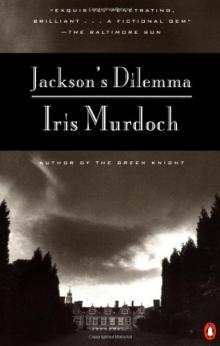 Jackson's Dilemma
Jackson's Dilemma The Flight From the Enchanter
The Flight From the Enchanter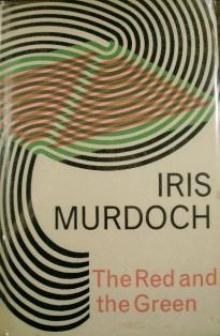 The Red and the Green (Vintage Classics)
The Red and the Green (Vintage Classics)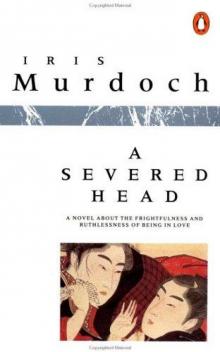 A Severed Head
A Severed Head The Black Prince
The Black Prince The Nice and the Good
The Nice and the Good The Unicorn
The Unicorn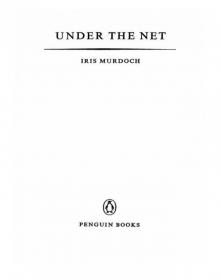 Under the Net
Under the Net The Italian Girl
The Italian Girl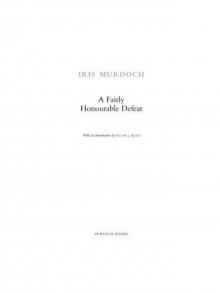 A Fairly Honourable Defeat
A Fairly Honourable Defeat An Accidental Man
An Accidental Man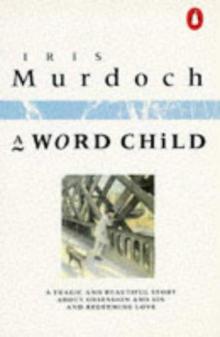 A Word Child
A Word Child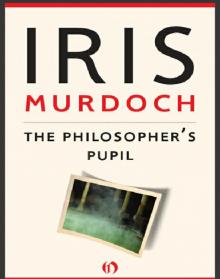 The Philosopher's Pupil
The Philosopher's Pupil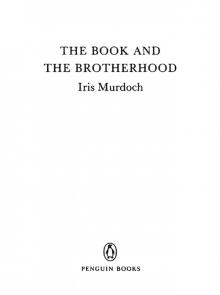 The Book and the Brotherhood
The Book and the Brotherhood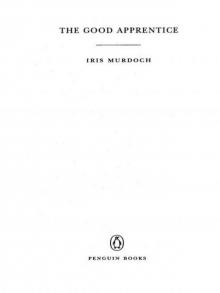 The Good Apprentice
The Good Apprentice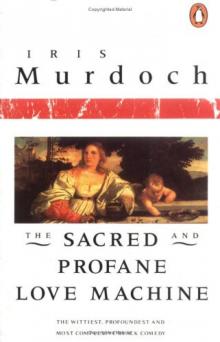 The Sacred and Profane Love Machine
The Sacred and Profane Love Machine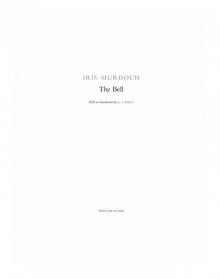 The Bell
The Bell Henry and Cato
Henry and Cato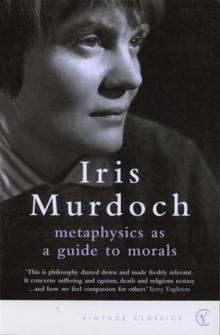 Metaphysics as a Guide to Morals
Metaphysics as a Guide to Morals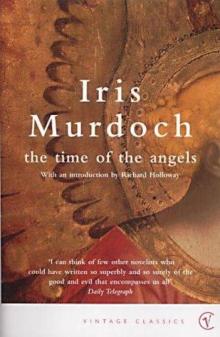 The Time of the Angels
The Time of the Angels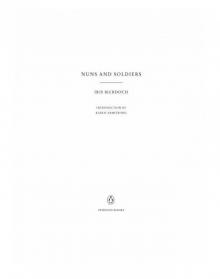 Nuns and Soldiers
Nuns and Soldiers The Green Knight
The Green Knight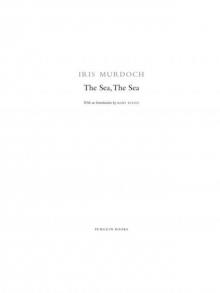 The Sea, the Sea
The Sea, the Sea Sartre: Romantic Rationalist
Sartre: Romantic Rationalist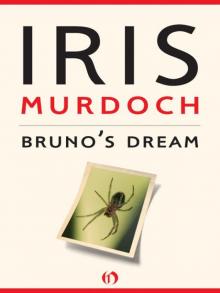 Bruno's Dream
Bruno's Dream An Unofficial rose
An Unofficial rose Sartre
Sartre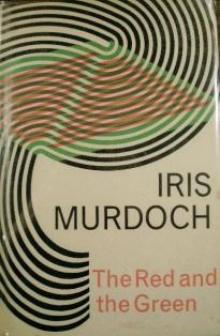 The Red and The Green
The Red and The Green